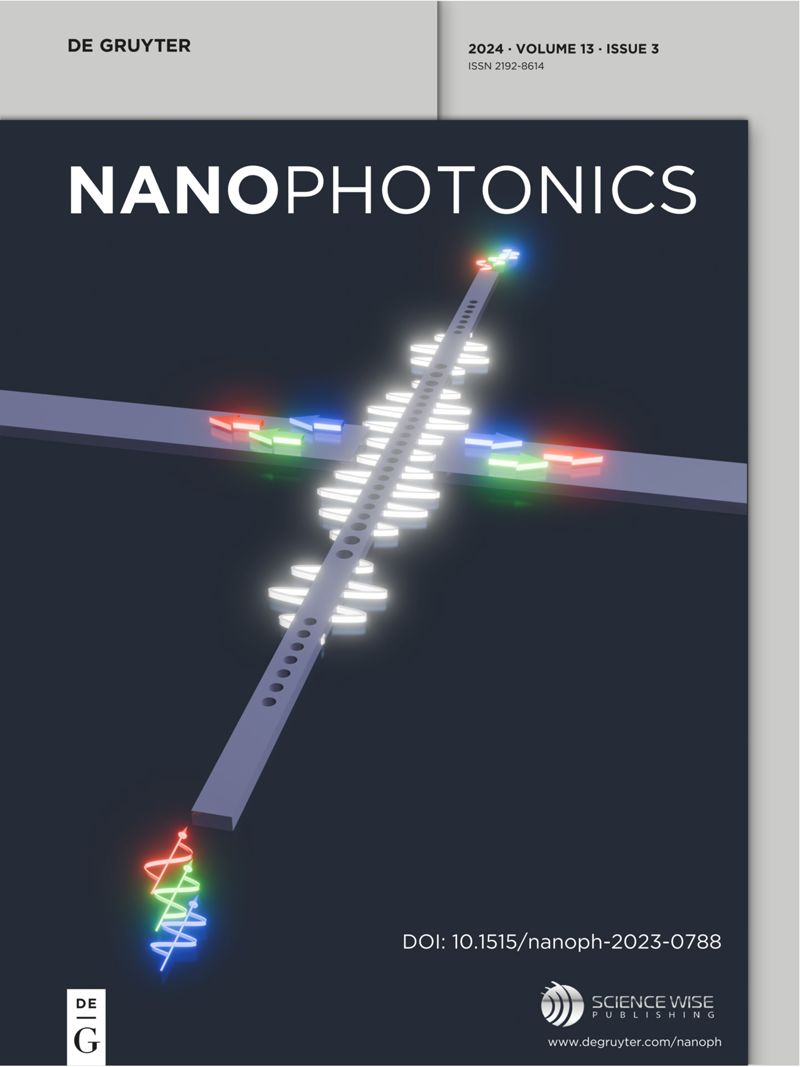Leveraging multiplexed metasurfaces for multi-task learning with all-optical diffractive processors
IF 6.5
2区 物理与天体物理
Q1 MATERIALS SCIENCE, MULTIDISCIPLINARY
引用次数: 0
Abstract
Diffractive Neural Networks (DNNs) leverage the power of light to enhance computational performance in machine learning, offering a pathway to high-speed, low-energy, and large-scale neural information processing. However, most existing DNN architectures are optimized for single tasks and thus lack the flexibility required for the simultaneous execution of multiple tasks within a unified artificial intelligence platform. In this work, we utilize the polarization and wavelength degrees of freedom of light to achieve optical multi-task identification using the MNIST, FMNIST, and KMNIST datasets. Employing bilayer cascaded metasurfaces, we construct dual-channel DNNs capable of simultaneously classifying two tasks, using polarization and wavelength multiplexing schemes through a meta-atom library. Numerical evaluations demonstrate performance accuracies comparable to those of individually trained single-channel, single-task DNNs. Extending this approach to three-task parallel recognition reveals an expected performance decline yet maintains satisfactory classification accuracies of greater than 80 % for all tasks. We further introduce a novel end-to-end joint optimization framework to redesign the three-task classifier, demonstrating substantial improvements over the meta-atom library design and offering the potential for future multi-channel DNN designs. Our study could pave the way for the development of ultrathin, high-speed, and high-throughput optical neural computing systems.利用全光衍射处理器的多路复用元表面进行多任务学习
衍射神经网络(DNN)利用光的力量来提高机器学习的计算性能,为高速、低能耗和大规模神经信息处理提供了一条途径。然而,大多数现有的 DNN 架构都针对单一任务进行了优化,因此缺乏在统一人工智能平台内同时执行多个任务所需的灵活性。在这项工作中,我们利用光的偏振和波长自由度,使用 MNIST、FMNIST 和 KMNIST 数据集实现了光学多任务识别。我们采用双层级联元表面,通过元原子库使用偏振和波长复用方案,构建了能够同时对两个任务进行分类的双通道 DNN。数值评估结果表明,其性能精度与单独训练的单通道、单任务 DNN 不相上下。将这种方法扩展到三任务并行识别时,发现性能会出现预期的下降,但所有任务的分类准确率都能保持在 80% 以上,令人满意。我们进一步引入了一个新颖的端到端联合优化框架来重新设计三任务分类器,与元原子库设计相比有了实质性的改进,并为未来的多通道 DNN 设计提供了潜力。我们的研究可以为开发超薄、高速和高通量的光学神经计算系统铺平道路。
本文章由计算机程序翻译,如有差异,请以英文原文为准。
求助全文
约1分钟内获得全文
求助全文
来源期刊

Nanophotonics
NANOSCIENCE & NANOTECHNOLOGY-MATERIALS SCIENCE, MULTIDISCIPLINARY
CiteScore
13.50
自引率
6.70%
发文量
358
审稿时长
7 weeks
期刊介绍:
Nanophotonics, published in collaboration with Sciencewise, is a prestigious journal that showcases recent international research results, notable advancements in the field, and innovative applications. It is regarded as one of the leading publications in the realm of nanophotonics and encompasses a range of article types including research articles, selectively invited reviews, letters, and perspectives.
The journal specifically delves into the study of photon interaction with nano-structures, such as carbon nano-tubes, nano metal particles, nano crystals, semiconductor nano dots, photonic crystals, tissue, and DNA. It offers comprehensive coverage of the most up-to-date discoveries, making it an essential resource for physicists, engineers, and material scientists.
 求助内容:
求助内容: 应助结果提醒方式:
应助结果提醒方式:


